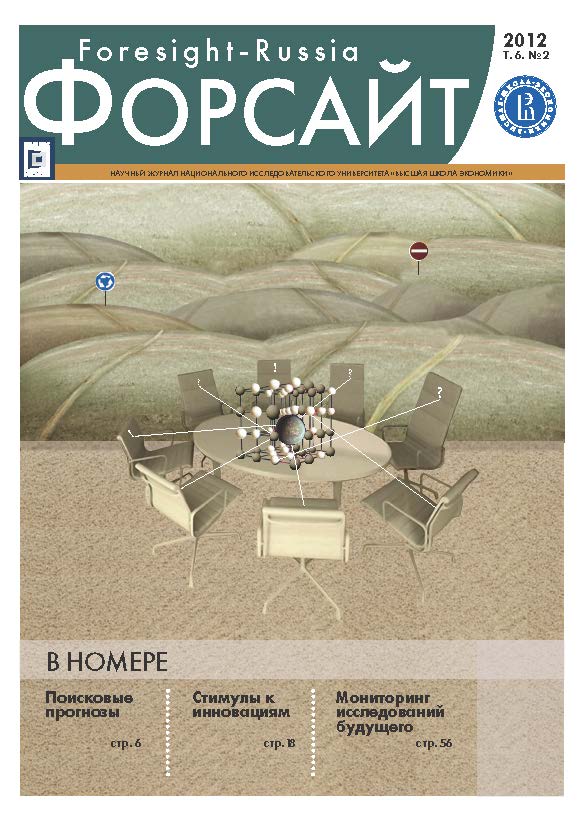Abstract
Denis Ivanov — Researcher, Interdepartmental Analytical Centre. E-mail: ivanov@iacenter.ru
Mikhail Kuzyk — Discipline Leader, Interdepartmental Analytical Centre. E-mail: kuzyk@iacenter.ru
Yury Simachev — Deputy Managing Director, Interdepartmental Analytical Centre. E-mail: simachev@iacenter.ru
Address: 31/29, bld.2, Povarskaya str., Moscow, Russia 121069, p.o. box 35.
Russian innovation policy has fostered considerable discussion: how to encourage innovation, what methods work best, and what institutional and resource bases are required, including a broad perception among decision-makers of the range of instruments commonly used. However, at the public level, by contrast with some local innovative projects, policy has not yet succeeded in finding an efficient way to leverage business innovation performance. This paper is based on an autumn 2011 survey of top managers of more than 600 Russian industrial enterprises. The authors analyze the success of current instruments for fostering business innovation and identify business demand for public policies. It focuses on factors hindering Russian firms’ innovation, including the instable business climate and internal bureaucratization of business processes, which limit openness to innovation, and factors promoting it, strengthening competitiveness, improving public procurement, and reinforcing industrial standards. More than half of the managers of innovative companies observed effects of policies promoting innovation, although this observation was mainly by champions rather than outsiders. According to the respondents the maximum policy outreach is attributable in the survey to tax incentives. In this sense, policy tools that were appreciated were those contributing to the expansion of innovation activity than to its start. The productivity of innovation naturally depends on management quality. The argument here is that policies that foster a stable regulatory environment attract innovation and investment, which helps augment the population of innovative firms. Such measures boost others more directly fostering innovation, especially new firms that need help in distributing risk. The tendency of respondents to appreciate importsubstitution policy is associated here with their lack of export orientation for the hi-tech products they produce. Policies restraining foreign trade, however, should be avoided as providing an adverse incentive to innovate as well as worsening conditions for technology adoption and adjustment.

